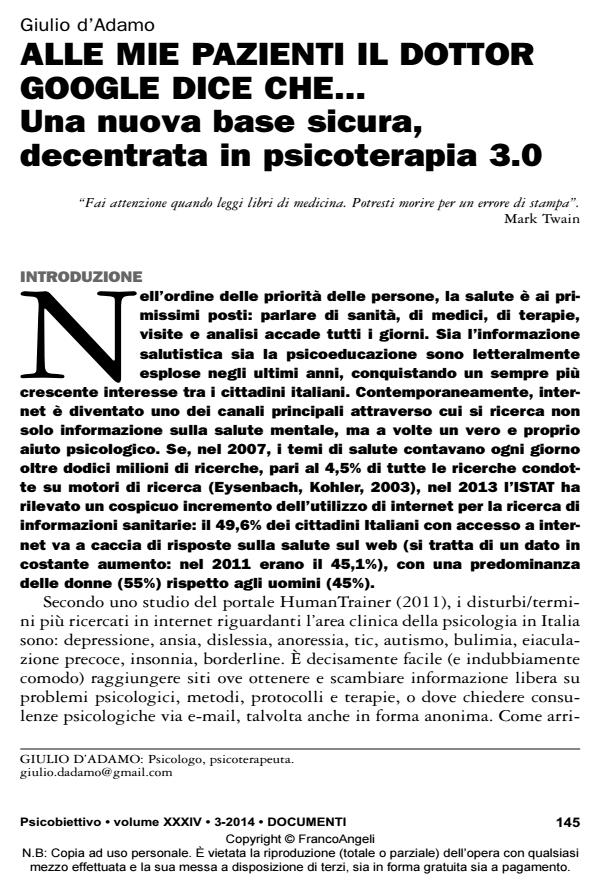Dr google says to my patients.. a new secure base, decentralized in psychotherapy 3.0
Journal title PSICOBIETTIVO
Author/s Giulio D'Adamo
Publishing Year 2015 Issue 2014/3
Language Italian Pages 26 P. 145-170 File size 189 KB
DOI 10.3280/PSOB2014-003010
DOI is like a bar code for intellectual property: to have more infomation
click here
Below, you can see the article first page
If you want to buy this article in PDF format, you can do it, following the instructions to buy download credits

FrancoAngeli is member of Publishers International Linking Association, Inc (PILA), a not-for-profit association which run the CrossRef service enabling links to and from online scholarly content.
The request of information on psychological discomfort is becoming very frequent, especially among youngsters and educated people. Some subjects who manifest shyness, shame, social anxiety or avoidant personality, can take advantage of the solitary use of the internet to search for information that otherwise would not be easily reachable in their social environment. Other patients instead use internet, the social networks and Apps to find a second opinion on their status or on their diagnosis; furthermore, many of them use the information retrieved during their sessions with their therapist. Others use on-line psychotherapy as a therapeutic channel. Google represents the opening door. A longitudinal research shows what today’s references to the Cognitive- Behavioral Therapy are (and were in 2007) available for a user that utilizes the web, in specific through Google.it, to retrieve information and find solutions for their own mental health.
Keywords: Mental Health; Psychoeducation; Internet; m-Health; Google; On-Line Psychotherapy; Cognitive-Behavioral Therapy; CBT
- HCI International 2019 - Posters Eliseo Sciarretta, Lia Alimenti, pp.514 (ISBN:978-3-030-23524-6)
Giulio D'Adamo, Alle mie pazienti il dottor google dice che... Una nuova base sicura, decentrata in psicoterapia 3.0 in "PSICOBIETTIVO" 3/2014, pp 145-170, DOI: 10.3280/PSOB2014-003010